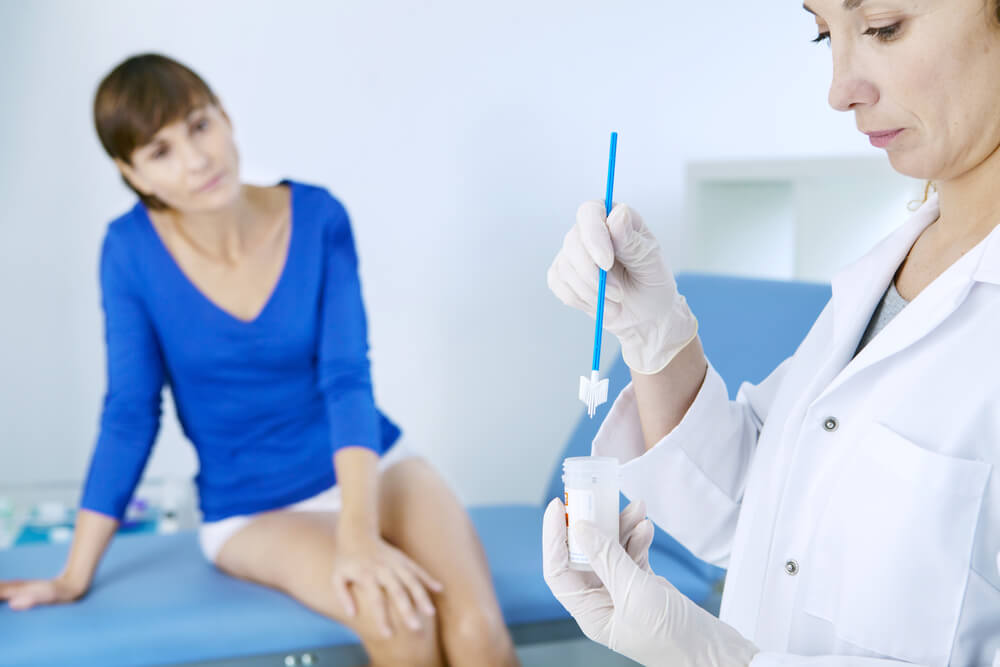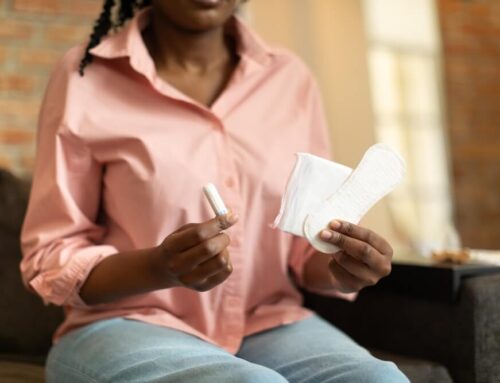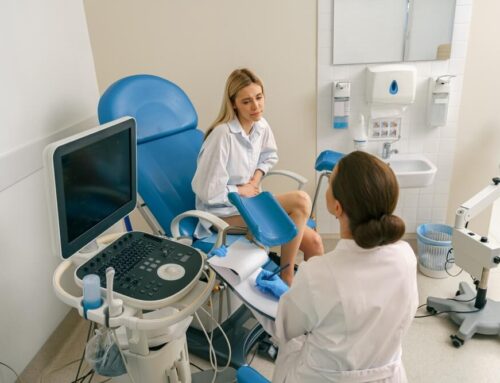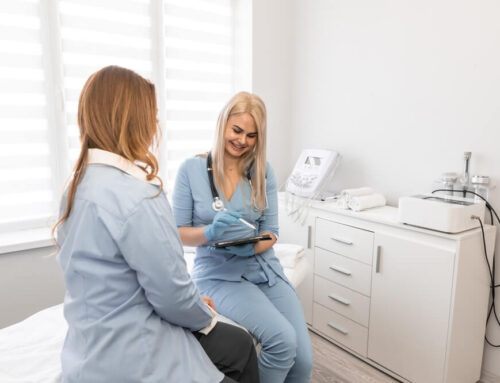You’ve probably heard this many times but may not understand why or how often should you get a pap smear. Pap smears are an important tool for detecting cervical cancer. Maintaining your vaginal health is important for all women and scheduling a regular pap smear is super important. The American Cancer Society states a woman should start regularly receiving pap smears at 18 or when they become sexually active, whichever comes first. A doctor may make different recommendations based on the health and medical history of a woman but most likely, they should be performed yearly. With over 50 million pap smears performed every year, The American Cancer Society also estimates that between 60 and 80% of American women who are newly diagnosed with cervical cancer had not had a pap smear within the last five years.
What Is a Pap Smear?
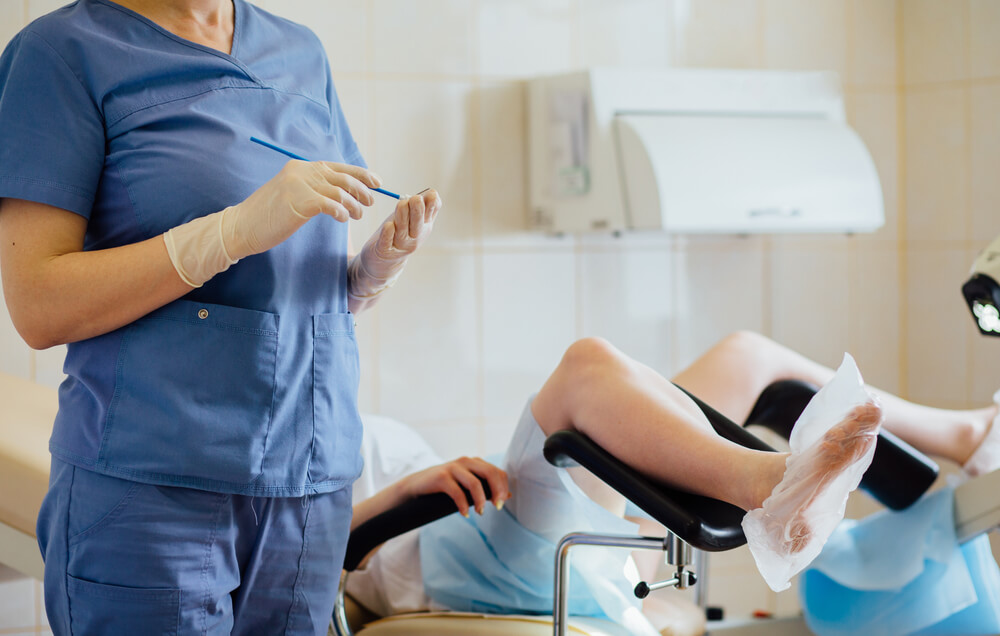
A pap smear is a cervical screening test used to examine cells from the cervix and the vagina developed in the 1940s in the US by Dr. George Papaniclaou. Part of the study involves studying cervical and vaginal cells to determine any pre-cancerous changes. If these abnormal cells are identified, they are classified according to their degree of abnormality. Many abnormal pap smears are caused by an infection or inflammation of the cervix which is typically successfully treated without leading to cancer. Abnormal pap smears can be an indication of HPV or human papillomavirus, swelling, inflammation, cervical cancer, or precancerous cell changes.
A pap smear is an extremely reliable tool in detecting cervical cancer in its early stages. HPV testing is used to identify precancerous lesions caused by HPV. In addition, another objective is to identify cervical cancer very early. There are actually three types of pap smears created to test for varying degrees of abnormality that include:
- HPV testing – high-risk HPV types in cervical cells
- Pap testing – cervical cell changes
- HPV / Pap contesting
Women should talk with their doctor about when to start screening. Recently, The United States Preventive Services Task Force released updated screening guidelines from the United States Preventive Services Task Force that read as follows: Women ages 21 through 29 should be screened every 3 years with a Pap test. Women ages 30 through 65 should have one of these three screenings routinely:
- Ages 21 – 29 screened with pap test every 3 years
- Ages 30 – 65 screened with any 3 tests
- Every 5 years for high-risk HPV testing alone
- Every 5 years high-risk HPV for co-testing with pap
- Every 3 years for Pap test alone every
- High-risk women will need more frequent screening or beyond 65
- Infected with the human immunodeficiency virus ( HIV)
- Immunosuppressed
- Been treated for precancerous cervical lesions or cervical cancer
- Been exposed to diethylstilbestrol before birth (nonsteroidal estrogen medication)
Cervical screening is advised for women younger under the age of 21 or women who have had a total hysterectomy and a past of cervical cancer or high-grade cervical lesions. It is also not recommended for women older than 65 who have had an adequate prior screening with normal results and who are not otherwise at risk. Since an HPV infection of the cervix is fairly common, most infections are controlled by your body’s immune system over the course of one to two years and only produce temporary cell changes. This is the reason for the update for pap test frequency. The intervals in pap testing help to alleviate the needless psychological stress of treating abnormalities that disappear by themselves over time.
Does a pap smear test for herpes? Does a pap smear test chlamydia? Can a pap smear detect infertility? These are all valid and very common questions you may have. The simple answer to all of these questions is no. A pap smear can not detect herpes, chlamydia, or detect infertility. In fact, there is no one test that can detect female infertility. If you are experiencing symptoms of STD, you should inform your doctor and they may recommend STD testing. All of these issues should be discussed honestly at your next well-woman exam.
What to Expect at Your Next Pap Smear?
You should do some preparation before getting a pap smear which includes abstaining from douching, sex, vaginal medicines, spermicidal foams, jellies, or creams for at least two days before your pap smear. They can vanish or unknown uncommon cells in your vagina. Be mindful not to schedule your pap smear during your menstrual period. Avoid this time if at all possible. The test will only take a few minutes and will take place at your doctor’s office. You will be asked to take off your clothes from the waist down or sometimes completely. First, you will lie down on the exam table knees bent and your feet placed in clamps. Your physician will place an instrument called a speculum into your vaginal region, which holds the walls apart so your doctor can see your cervix. When the range is entered, you may feel uncomfortable pressure. Once it is placed, your physician will withdraw samples of your cervix with a soft brush and a flat scraping device called a spatula. You won’t feel any pain. You can go about your normal routine after a pap smear. Your physician will conduct testing depending on the type of pap test and will transfer the sample of the cell from your cervix to a container with a special liquid meant to preserve it for examination. These samples are then taken to a laboratory and examined under a microscope for characteristics that indicate cancer or precancerous abnormalities.
What Do Pap Smear Results Mean?

Pap smear results are meant to provide your doctor with the information needed for the next steps. Normal test results are an indication that normal cervical cells were discovered during the pap smear and are also considered a negative result. No further treatment or testing will be recommended until you are due for your next routine pap smear. A positive result is an indication of abnormal or unusual cells found during the pap smear. However, this does not mean that you have cervical cancer. A positive pap smear can be many different things:
- ASCUS – Atypical squamous cells of undetermined significance are thin and flat cells that grow on the surface of an otherwise healthy cervix. The pap smear may indicate abnormal cells but it may not be clear that they are cancerous. The doctor uses a liquid-based test to reanalyze the sample for the presence of viruses like HPV. If there is no indication of HPV, then the abnormal cells are of no concern. However, if found otherwise, you’ll need additional testing.
- Squamous intraepithelial lesion – This indicates precancerous cells. They are classified based on their grade which includes size, shape. If determined to be low grade, the precancerous lesion is thought to be years away from developing into cancer. If high grade, then it’s likely to become cancer in a relatively shorter period of time.
- Atypical glandular cells – These cells produce mucus and grow on the cervix and uterus. They may appear abnormal but not clearly cancerous. Additional testing is needed to determine its source.
- Squamous cell cancer or adenocarcinoma – This is an indication that cancer is present. If this is found, your doctor will order a prompt evaluation.
Schedule Your Pap Smear Today!
How often should you get a pap smear? This is a conversation you can have with us when you schedule your next appointment. Our personalized and professional approach to health care has earned the trust of both patients and physicians alike. Our commitment to building strong, trusting relationships has resulted in even better and stronger outcomes. If you are in need of a Female Gynecology Specialist in Margate, Florida, you came to the right place. Give us a call today and schedule your appointment.


